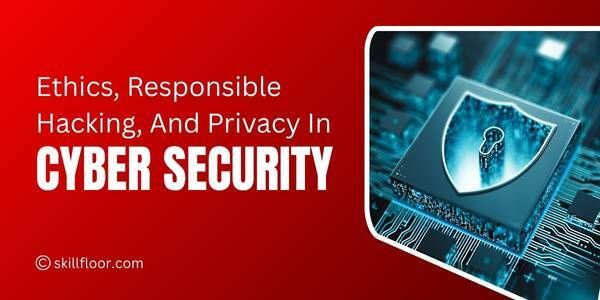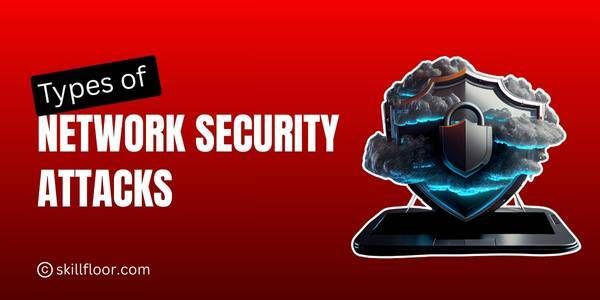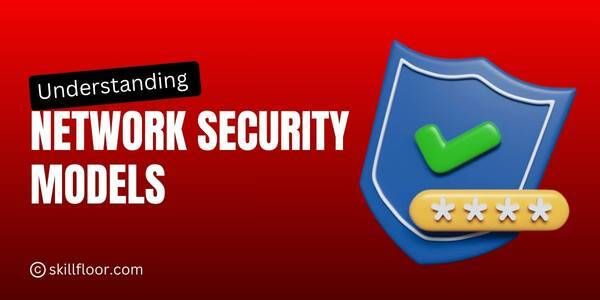Cybersecurity Skills: Exploring the World of Digital Defenders
Master the essential skills for cybersecurity and become a digital defender of tomorrow. Protect networks, detect threats, and secure data

In today's interconnected world, cybersecurity plays a vital role in protecting individuals, organizations, and nations from cyber threats. As the digital landscape evolves, so does the need for skilled cybersecurity professionals. Whether you're considering a career in cybersecurity or simply interested in bolstering your digital defenses, understanding the essential skills required is a great starting point. In this blog, we'll explore the key skills for cybersecurity in a friendly and approachable manner, helping you navigate the exciting world of digital defenders.
Technical Proficiency
Technical proficiency forms the foundation of cybersecurity skills. It encompasses knowledge and expertise in areas such as network security, operating systems, programming languages, encryption techniques, and vulnerability assessment. Understanding how different technologies work, identifying vulnerabilities, and implementing effective security measures are crucial aspects of technical proficiency.
Cyber Threat Intelligenc
Proactive Defense:
Cyber Threat Intelligence enables organizations to adopt a proactive approach to cybersecurity by identifying potential threats and vulnerabilities before they materialize. It provides valuable insights into emerging trends, attack vectors, and evolving threat actors, allowing organizations to stay one step ahead and fortify their defenses.
Enhanced Situational Awareness:
By monitoring and analyzing threat intelligence data, organizations gain a deeper understanding of the cybersecurity landscape. They can identify patterns, indicators of compromise (IOCs), and potential attack vectors, enabling them to make informed decisions and better allocate resources to protect their systems and data.
Mitigation and Response:
Cyber Threat Intelligence helps organizations develop effective mitigation strategies and response plans. By understanding the motivations, tactics, and tools used by threat actors, security teams can tailor their defenses and response mechanisms accordingly. This proactive approach improves incident response times and enhances the organization's ability to detect, contain, and remediate cyber threats effectively.
Collaboration and Information Sharing:
Cyber Threat Intelligence fosters collaboration and information sharing among organizations, industry sectors, and government agencies. Sharing threat intelligence data allows organizations to collectively combat cyber threats by leveraging shared insights, indicators, and
Analytical and Problem-Solving Skills:
Analytical and problem-solving skills are critical in cybersecurity. Cybersecurity professionals must have the ability to analyze complex systems, detect anomalies, and identify potential security breaches. They should possess strong problem-solving capabilities to address security incidents, investigate breaches, and develop effective countermeasures.
Communication and Collaboration:
Effective communication and collaboration skills are vital for cybersecurity professionals to interact with different stakeholders. Cybersecurity incidents often require clear and concise communication with management, IT teams, and end-users. Cybersecurity professionals must be able to explain technical concepts in a non-technical manner, facilitate cooperation among team members, and effectively communicate security best practices to end-users.
Ethical Hacking and Penetration Testing:
Ethical hacking, also known as penetration testing, involves simulating real-world cyberattacks to identify vulnerabilities and weaknesses in systems. Having the skills to conduct ethical hacking and penetration testing allows cybersecurity professionals to proactively assess security controls, identify potential entry points, and recommend remediation strategies to enhance security posture.
Incident Response and Forensics:
Incident response and forensics skills are essential for handling security incidents and conducting investigations. Cybersecurity professionals should be able to analyze security incidents, mitigate their impact, and restore systems to normalcy. Additionally, knowledge of digital forensics helps in collecting and analyzing digital evidence to determine the root cause of security incidents and support legal proceedings if necessary.
Security Policy and Compliance:
Understanding security policies and compliance frameworks is crucial in maintaining a secure environment. Cybersecurity professionals should have knowledge of industry standards and regulations such as GDPR, HIPAA, and ISO 27001. They should be able to develop and enforce security policies, conduct risk assessments, and ensure compliance with relevant regulations.
Continuous Learning:
Cybersecurity is a rapidly evolving field, and continuous learning is essential to stay ahead of emerging threats and technologies. Cybersecurity professionals should have a passion for learning, exploring new techniques, attending conferences, and engaging in professional development activities. By staying informed about the latest trends and innovations, they can effectively adapt and protect against evolving cyber threats.
Knowledge of Security Frameworks and Standards:
Familiarity with security frameworks such as NIST, CIS, and OWASP helps in implementing effective security controls and aligning with industry best practices.
Understanding compliance requirements and standards specific to your industry, such as PCI DSS for payment card data security, is crucial.
Secure Coding Practices
Proficiency in secure coding practices helps in developing secure software and applications, reducing the risk of vulnerabilities and potential exploits.
Knowledge of secure coding languages, such as Java or C#, and understanding common vulnerabilities, like SQL injection and cross-site scripting, is essential.
Risk Assessment and Management
The ability to assess risks, identify potential threats, and prioritize security measures helps in allocating resources effectively and mitigating potential vulnerabilities.
Understanding risk management methodologies, such as quantitative and qualitative risk analysis, assists in making informed decisions regarding security controls.
Security Awareness and Training
Promoting a culture of security within an organization requires educating employees about security threats, best practices, and their role in maintaining a secure environment.
Effective security awareness and training programs help in reducing human errors, such as falling for phishing scams or using weak passwords.
Knowledge of Networking and Infrastructure
Understanding network protocols, firewall configurations, and network security concepts helps in implementing robust network security measures.
Knowledge of network architecture and infrastructure components aids in identifying potential vulnerabilities and implementing appropriate security controls.
Cloud Security
Familiarity with cloud computing and cloud security principles is important as organizations increasingly adopt cloud services.Understanding shared responsibility models, encryption, access controls, and data protection measures specific to cloud environments is crucial.
Incident Handling and Response:
The ability to effectively respond to security incidents, mitigate their impact, and implement corrective actions is vital.Familiarity with incident response frameworks, incident handling procedures, and the use of incident response tools helps in efficiently managing security incidents.
Soft Skills:
Alongside technical skills, soft skills like teamwork, problem-solving, and adaptability are valuable in cybersecurity roles.Effective communication, both written and verbal, allows for clear articulation of security issues and collaboration with stakeholders.
In a Nutshell, The world of cybersecurity offers exciting opportunities for those passionate about protecting the digital world. By acquiring and honing the essential skills mentioned above, you can embark on a successful cybersecurity journey. Remember, cybersecurity is not just about technical proficiency; it also requires effective communication, analytical thinking, and a commitment to continuous learning. So, embrace these skills, embark on your cybersecurity adventure, and become a valuable guardian of the digital realm!
































































